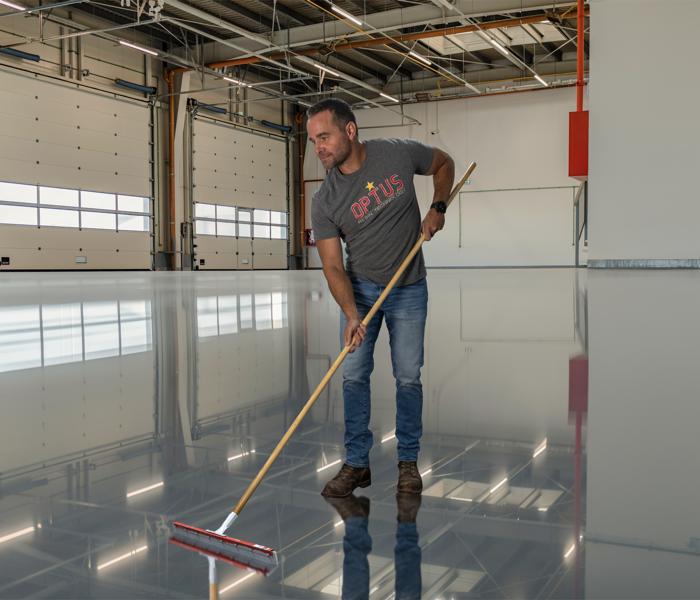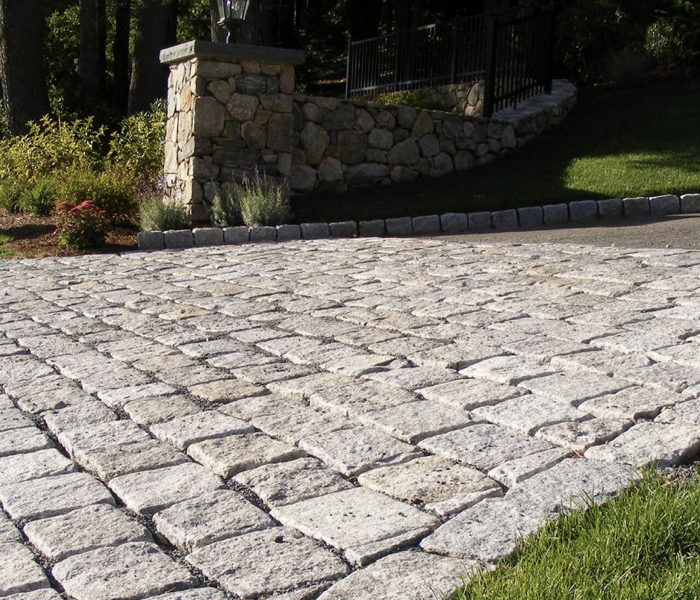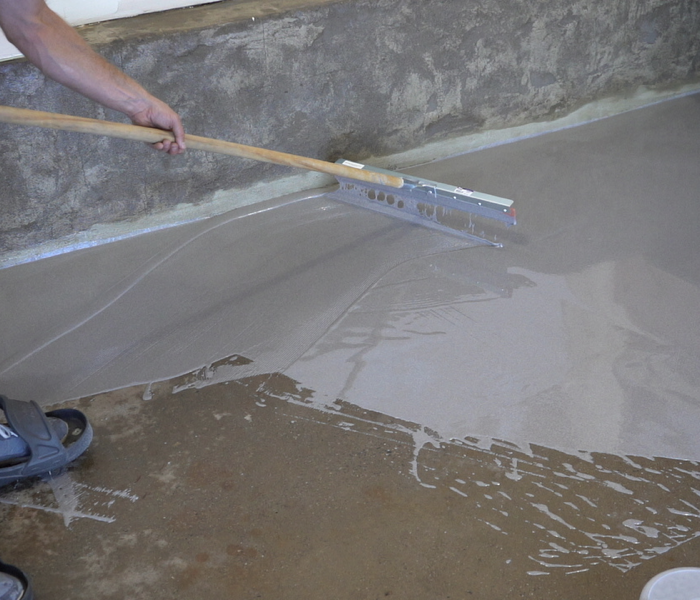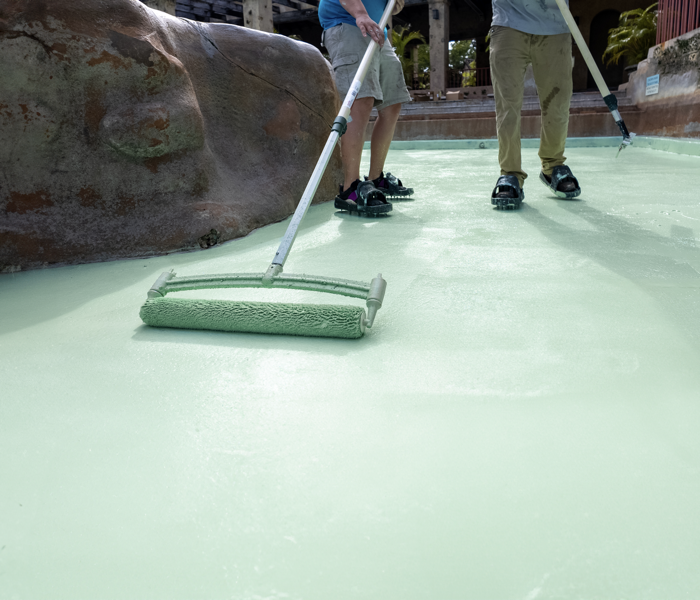
Deciding on the right thickness for a resin path can be confusing. The ideal minimum thickness sits around 18 millimeters, offering durability and stability. This article will guide you through selecting the perfect depth for your resin driveway or pathway, considering factors like traffic and substrate solidity.
Recommended Thickness for Resin Pathways
For resin pathways, the standard minimum thickness is typically 18mm. Adjustments may be necessary based on the size of the aggregate used in the mixture.

Standard minimum thickness (18mm)
Industry guidelines recommend a standard minimum thickness of 18mm for resin driveways to ensure they meet the necessary strength and durability requirements. This specific depth is crucial as it provides the resin bound surface with enough volume to achieve the required tensile strength, making it less susceptible to wear and tear.
Such a thickness makes the surface tougher, reducing the likelihood of cracking or chipping under regular use.
The selection of an 18mm thickness aligns with recommendations that state a driveway’s depth should be at least three times that of the largest aggregate size used in its construction.
It stands as a solid foundation for installing resin pathways, incorporating key elements like pouring resin layer techniques and achieving an optimal balance between hardcore depth and surface stability.
Adjustments based on aggregate size
When adjusting the thickness of a resin pathway based on aggregate size, it is crucial to consider industry guidelines. The minimum depth for resin driveway installation should be three times the largest aggregate size used in the driveway.
For instance, if 6mm aggregate is being used, the minimum recommended depth for the resin pathway would be 18mm. This ensures that the resin pathway has adequate strength and durability to withstand expected traffic and usage while maintaining stability over time.
Factors Affecting Required Thickness
Factors such as the stability of the substrate and the anticipated traffic and usage play a crucial role in determining the necessary thickness for resin pathways. These elements directly impact the durability and longevity of the pathway, making it essential to consider them during installation.
Substrate stability
The substrate stability is crucial for the durability and performance of a resin pathway. Specifically, a solid substrate is essential for a resin-bound driveway surface as it underpins its strength and longevity. Industry guidelines emphasize that the depth of the substrate plays a significant role in ensuring the necessary strength and durability, with stability being paramount for the overall integrity of the pathway.
By adhering to industry standards based on substrate stability, installers can ensure that resin pathways meet necessary strength requirements and deliver long-term performance. A stable base not only supports but also enhances the overall robustness and durability of resin surfaces.
Expected traffic and usage

The expected traffic and usage play a crucial role in determining the required thickness of resin pathways. For instance, for high-traffic areas such as driveways or commercial pathways, a thicker layer of resin is essential to withstand wear and tear.
Industry guidelines recommend a minimum depth of 18mm for resin-bound driveways to ensure durability under heavy use. Deeper depths are imperative for applications subjected to heavier loads or frequent foot traffic.
Conclusion
A resin path’s thickness is crucial for its stability and durability. Follow the industry guidelines to determine the required depth based on specific factors like substrate stability and expected traffic.
Ensure a solid substrate for a lasting, resilient resin surface that can withstand wear and tear. The correct thickness will provide long-term performance, strength, and resistance to cracking or damage.
When it comes to selecting the perfect resin for your pathway project, consider reputable suppliers who prioritize quality and durability. Optus Resin Technology, a leading manufacturer of high-quality drive and walk resin products, offers a variety of options to suit your needs. Our products are formulated with superior materials and engineered to ensure exceptional strength and longevity.
We provide expert advice and recommendations to help you determine the ideal resin thickness for your specific project. Their team can guide you through factors like substrate stability, expected traffic, and aggregate size to ensure a pathway that is both beautiful and built to last.
FAQs
1. What is the recommended thickness for a resin bound driveway?
The recommended thickness for a resin bound driveway typically depending on the type of use it will get.
2. How do I decide on the depth of my resin driveway?
To decide on the depth of your resin driveway, consider its intended use; heavier vehicles require thicker layers.
3. Can the base affect how thick my resin pathway needs to be?
Yes, a stable and well-prepared base is crucial for determining the optimal thickness of your resin pathway installation, ensuring durability and longevity.
4. Are there different requirements for the thickness between a walkway and a driveway made with epoxy coating or paving material?
Absolutely! A walkway might only need to be about 15mm thick since it handles less weight, while driveways demand greater thickness due to vehicle traffic.





